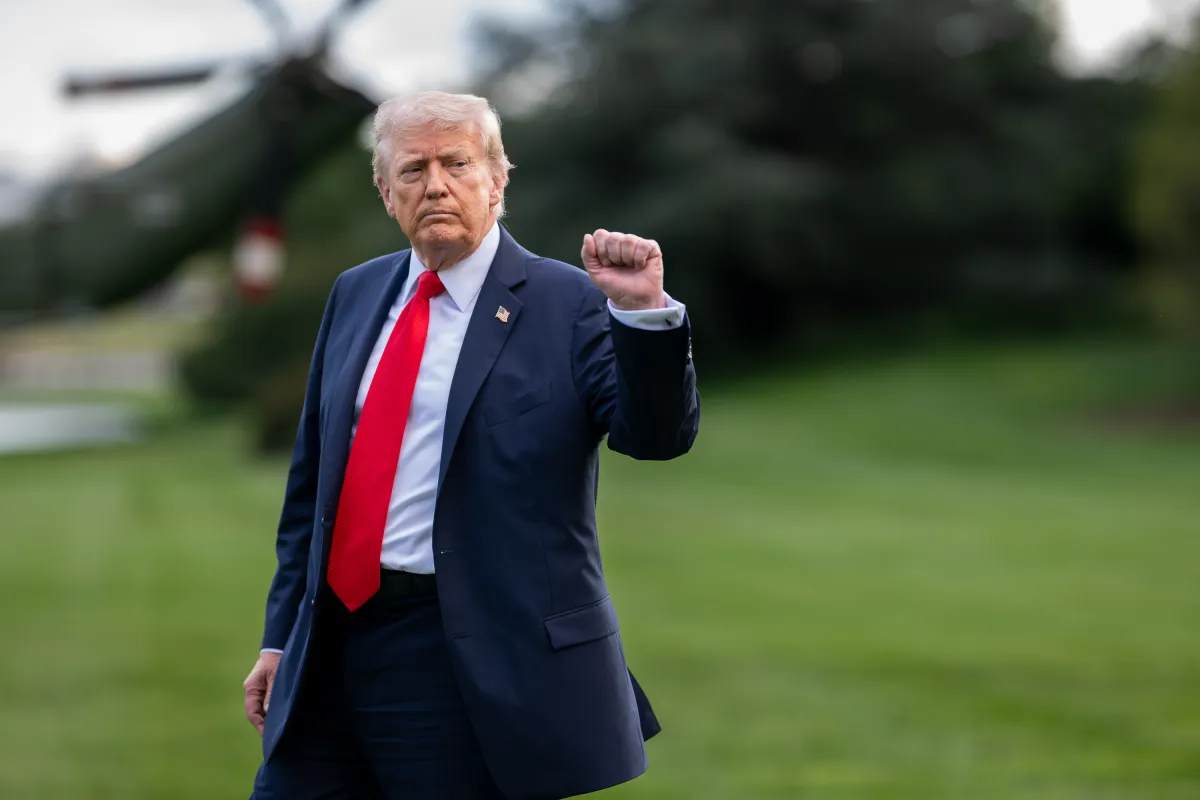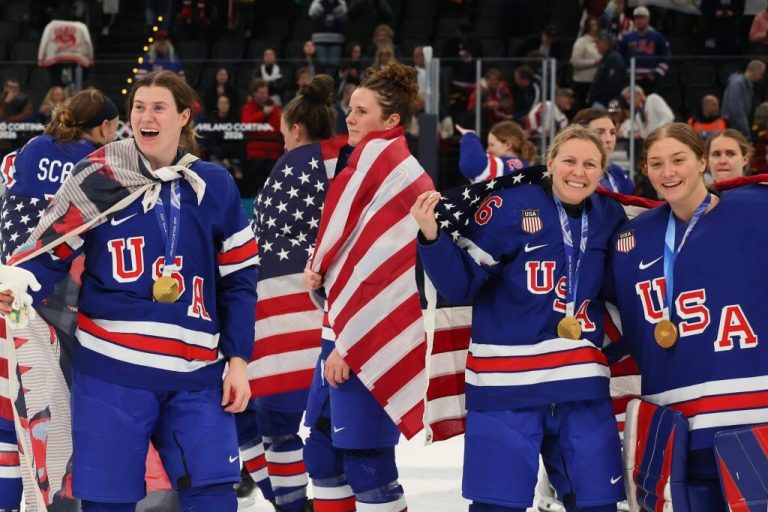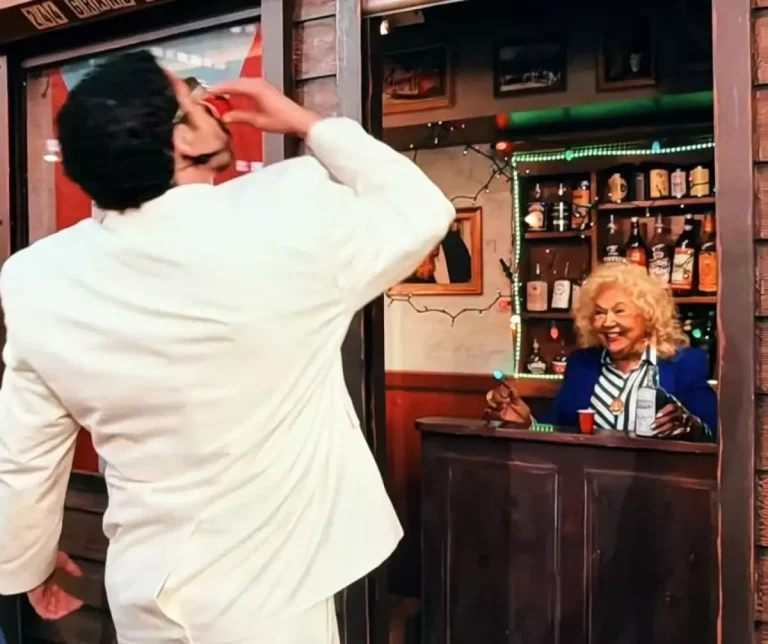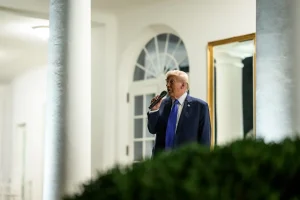A day after President Donald Trump was passed over for the 2025 Nobel Peace Prize, the head of the Norwegian Nobel Committee publicly pushed back against the White House’s charge that the decision reflected “politics over peace.”
Speaking to Sky News, committee chair Jørgen Watne Frydnes said the panel is accustomed to “pressure and lobbying” from across the world but insisted its choices remain independent and guided by the principles set out in Alfred Nobel’s will.
“We read the news as everyone else, and this year there has been quite a lot of focus on that,” Frydnes said. “But I must also say that in the long history of the Nobel Peace Prize, we have seen all kinds of campaigns, lobbying, [and] pressure. Every year we receive thousands of letters and emails from people who want to express their opinion about who should receive the prize and what actually leads to peace. That’s something we’re quite used to.”
His comments came after a pointed statement from the White House accused the Nobel Committee of letting bias influence its decision not to recognize Trump for his claimed efforts to “end wars and save lives.”
White House Slams Committee: ‘Politics Over Peace’
The latest exchange began shortly after the Norwegian Nobel Committee announced that this year’s Peace Prize would go to María Corina Machado, the Venezuelan opposition leader who has become a symbol of democratic resistance against President Nicolás Maduro.
Machado was honored for her decades-long campaign for free elections and nonviolent transition to democracy in Venezuela, a nation suffering under political repression and economic collapse.
While the announcement drew widespread praise from international observers, the reaction from Washington was more complicated.
In a statement posted to social media, Steven Cheung, the White House Director of Communications, lashed out at the Nobel Committee for what he described as a “deeply political decision.”
“President Trump will continue making peace deals, ending wars, and saving lives,” Cheung wrote. “He has the heart of a humanitarian, and there will never be anyone like him who can move mountains with the sheer force of his will. The Nobel Committee proved they place politics over peace.”
The post quickly went viral, reflecting both the administration’s frustration and the renewed attention surrounding Trump’s long-standing pursuit of the prestigious award.
Trump’s Ongoing Obsession With the Prize
President Trump has made little secret of his desire to win the Nobel Peace Prize — a fascination that dates back to his first term in the White House. Over the years, he has repeatedly cited his diplomatic accomplishments as evidence that he deserves the honor once bestowed upon four U.S. presidents: Theodore Roosevelt, Woodrow Wilson, Jimmy Carter, and Barack Obama.
Trump has frequently pointed to what he describes as his record of “ending seven wars,” as well as his role in brokering peace initiatives, including this year’s Israel–Hamas ceasefire deal, which led to a phased troop withdrawal from Gaza.
Just last month, the president told supporters he “deserved” the prize and claimed several world leaders, including Israeli Prime Minister Benjamin Netanyahu, had nominated him.
“I’ve done more for peace than anyone,” Trump said at a campaign rally in Michigan. “They’ll never give it to me, but everybody knows I earned it.”
Although the Nobel Committee does not publicly release its list of nominees, multiple public figures, including lawmakers in Israel and Eastern Europe, have confirmed nominating Trump for the 2025 prize.
However, under Nobel rules, nominations close at the end of January, meaning many of Trump’s recent achievements — such as the Gaza peace agreement — came too late to be considered this year.
Committee Chair Defends Process
Frydnes emphasized that the committee’s deliberations are independent and insulated from political pressure, noting that intense lobbying from supporters of prominent figures is hardly new.
“We have seen everything from organized letter campaigns to high-level lobbying efforts,” Frydnes told Sky News. “In the end, our responsibility is to follow the principles outlined by Alfred Nobel — to reward those who have done the most to advance fellowship among nations, reduce armaments, and promote peace congresses.”
The chair reiterated that Machado’s selection reflected the committee’s commitment to democratic values at a time when “democracy itself is in retreat globally.”
“This is work that we believe is deserving,” Frydnes said. “We hope that political leaders and nations around the world will support the movement for democracy in Venezuela and a peaceful transition from a brutal dictatorship to freedom.”
Machado’s Award: A Symbol of Defiance
Machado, 58, has long been one of the most prominent figures in Venezuela’s opposition. A former member of the National Assembly, she emerged as the leading challenger to Nicolás Maduro in the 2024 presidential election, which international observers say she won decisively before Maduro refused to recognize the result.
Her leadership during Venezuela’s deepening political and humanitarian crisis has drawn admiration abroad and severe retaliation at home. The Maduro government banned her from holding public office and restricted her movement, yet she has continued organizing mass protests and advocating nonviolent civil resistance.
In awarding her the Peace Prize, the committee praised her “steadfast and courageous commitment to democratic principles in the face of repression.”
“Democracy is a precondition for lasting peace,” the committee said in its announcement. “However, we live in a world where democracy is in retreat, where more and more authoritarian regimes are challenging norms and resorting to violence. María Corina Machado has been steadfast in her support for a peaceful transition to democracy.”
Trump’s Reaction: Frustration, Then Praise
Although visibly frustrated by the snub, President Trump struck a relatively measured tone in his initial public comments, even suggesting that Machado herself had reached out to express respect.
“The person who actually got the Nobel Prize called today,” Trump said during a press event. “She said, ‘I’m accepting this in honor of you, because you really deserved it.’ A really nice thing to do.”
He added, with a hint of humor, “I didn’t say, ‘Then give it to me,’ though.”
Later, Trump hinted that the timing of the award might have worked against him.
“It was given after ’24, and I was running for office in ’24,” he said. “There are those who say that we did so much that they should have done it.”
The president concluded by emphasizing his own record: “I’m happy because I saved millions of lives.”
A History of Political Tension Around the Prize
Controversy surrounding the Nobel Peace Prize is far from new. Over the decades, the award has often ignited fierce political debate — especially when given to sitting world leaders.
When Barack Obama received the prize in 2009 just months into his presidency, critics argued it was premature. Henry Kissinger’s 1973 award for his role in the Vietnam peace talks sparked protests and resignations within the committee.
In contrast, the Nobel Committee in recent years has leaned toward honoring grassroots activists, journalists, and human rights defenders rather than heads of state. The 2021 prize went to journalists Maria Ressa and Dmitry Muratov for defending press freedom, while 2022’s laureates included activists from Belarus, Russia, and Ukraine.
Frydnes’ emphasis on democracy in this year’s award continues that trajectory — highlighting movements rather than governments.
“We hope that political leaders, countries, and people will support this mass movement that wants democracy in Venezuela,” he said. “That is what will lead to peace.”
Trump’s Next Move
Despite the setback, Trump’s aides suggest the president remains undeterred and may be nominated again next year. Supporters within his administration continue to frame his foreign policy as historic, citing his mediation efforts across the Middle East, Eastern Europe, and Asia.
Several conservative commentators have already renewed calls for Trump to be recognized in future years, arguing that his “peace through strength” doctrine aligns with the Nobel vision.
For his part, Trump has hinted that he will continue pursuing the recognition he believes he has earned.
“They can give it or not give it,” he said. “But the world knows who made peace happen.”
A Familiar Pattern
The unfolding tension between the White House and the Nobel Committee underscores the broader dynamic of Trump’s presidency — a leader seeking global validation while challenging the institutions that deny it.
As Frydnes and his colleagues defended their decision, Trump’s allies doubled down, portraying him as a victim of elite bias and an unappreciated peacemaker.
Whether or not he ever receives the Nobel Prize, Trump’s fixation on it has already ensured one thing: every October, when the world’s most famous award is announced, his name will once again be part of the conversation.

Emily Johnson is a critically acclaimed essayist and novelist known for her thought-provoking works centered on feminism, women’s rights, and modern relationships. Born and raised in Portland, Oregon, Emily grew up with a deep love of books, often spending her afternoons at her local library. She went on to study literature and gender studies at UCLA, where she became deeply involved in activism and began publishing essays in campus journals. Her debut essay collection, Voices Unbound, struck a chord with readers nationwide for its fearless exploration of gender dynamics, identity, and the challenges faced by women in contemporary society. Emily later transitioned into fiction, writing novels that balance compelling storytelling with social commentary. Her protagonists are often strong, multidimensional women navigating love, ambition, and the struggles of everyday life, making her a favorite among readers who crave authentic, relatable narratives. Critics praise her ability to merge personal intimacy with universal themes. Off the page, Emily is an advocate for women in publishing, leading workshops that encourage young female writers to embrace their voices. She lives in Seattle with her partner and two rescue cats, where she continues to write, teach, and inspire a new generation of storytellers.









